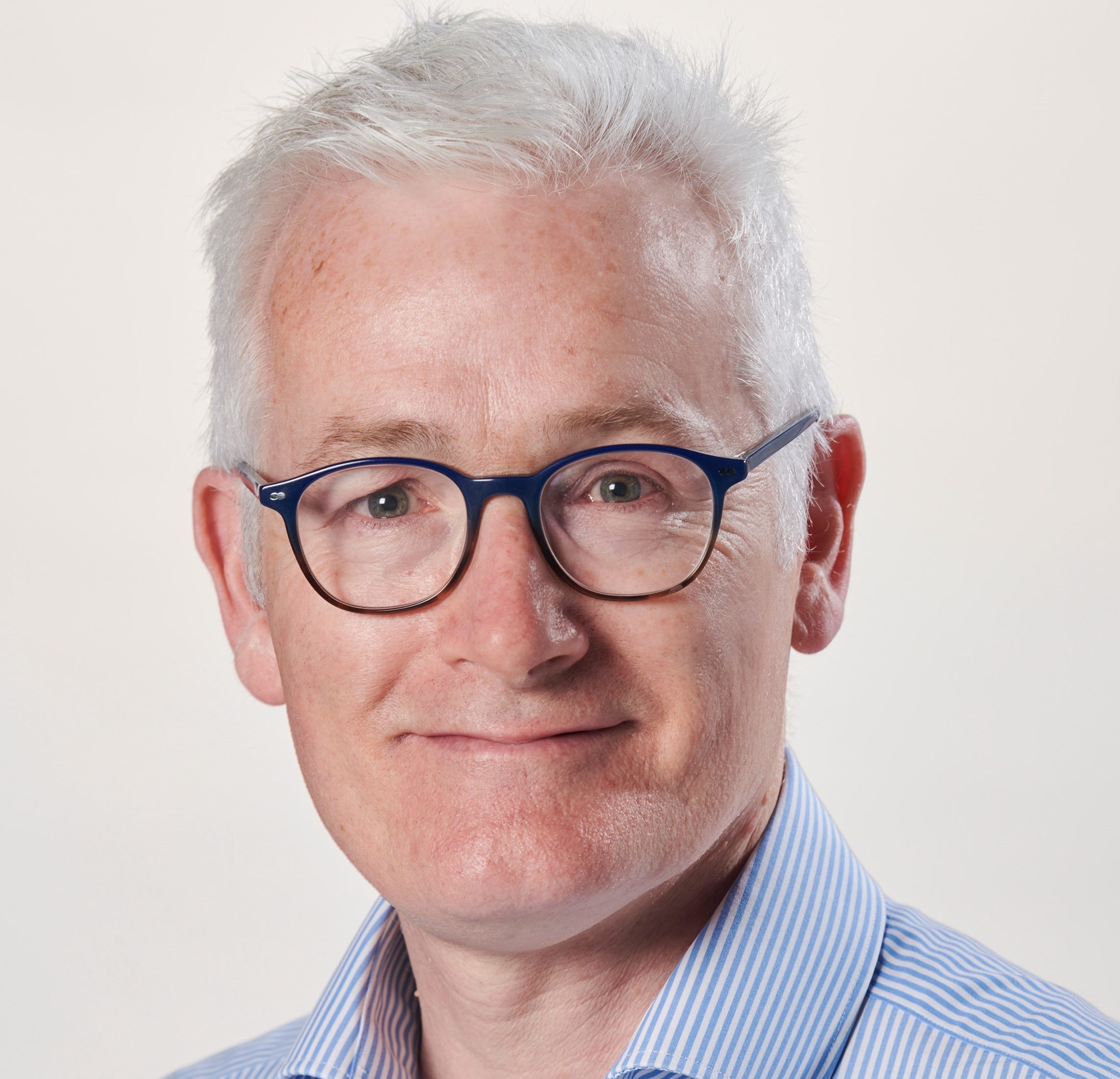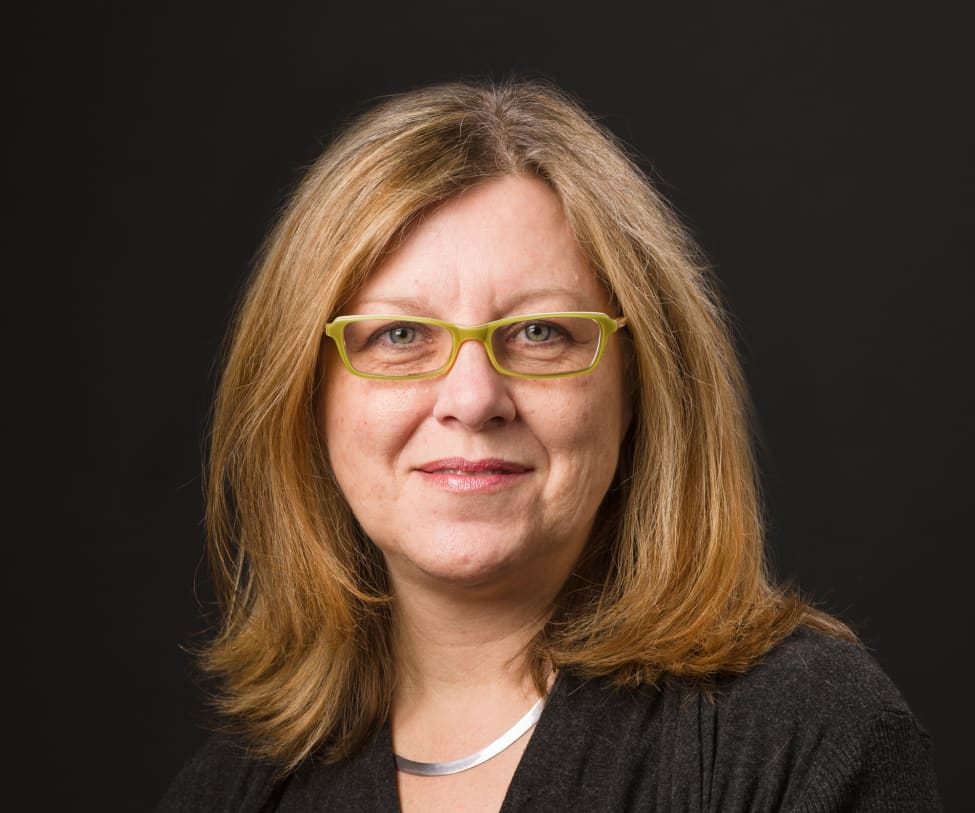touchPANEL DISCUSSION Immunotherapy for recurrent or metastatic HNSCC: What are the practical considerations?
Three experts explore the clinical application of immune checkpoint inhibitors for patients with recurrent or metastatic HNSCC.

Prof. Kevin Harrington
The Institute of Cancer Research, London, UK
CHAIR
Panelists:
Introduction
Prof. Kevin Harrington introduces the panel of leading experts in head and neck cancer, and outlines the agenda for the discussion on the practical considerations when using immunotherapy to treat patients with recurrent or metastatic HNSCC.
view bio and disclosures 1/4 Next ChapterImmune checkpoint inhibitors in the treatment of recurrent or metastatic HNSCC: How do we apply the trial data to clinical practice?
The expert panel considers the key trial data and discusses the use of immune checkpoint inhibitors in different clinical settings.
view bio and disclosures 2/4 Next ChapterWhat factors can be used to guide the use of immune checkpoint inhibitors in clinical practice?
The expert panel discusses the factors that can help guide treatment with immune checkpoint inhibitors. They also consider biomarkers that may support clinical decision-making in the future.
view bio and disclosures 3/4 Next ChapterHow can we identify and manage possible immune-related adverse events in patients with HNSCC?
The expert panel outlines the processes that they put in place to monitor for and manage immune-related adverse events.
view bio and disclosures 4/4 Take CE/CME TestOverview & Learning Objectives
Overview
In this activity, three leading experts in head and neck squamous cell carcinoma (HNSCC) consider the use of immune checkpoint inhibitors for treating recurrent or metastatic HNSCC in daily clinical practice. They discuss the application of clinical trial data to decision-making, how patient-specific factors influence treatment strategies and approaches to ensure the timely identification and management of potential immune-related adverse events.
This activity is jointly provided by USF Health and touchIME. read more
Target Audience
This activity has been designed to meet the educational needs of oncologists who are involved in the management of patients with head and neck squamous cell carcinoma.
Disclosures
USF Health adheres to the Standards for Integrity and Independence in Accredited Continuing Education. All individuals in a position to influence content have disclosed to USF Health any financial relationship with an ineligible organization. USF Health has reviewed and mitigated all relevant financial relationships related to the content of the activity. The relevant relationships are listed below. All individuals not listed have no relevant financial relationships.
Faculty
Prof. Kevin Harrington discloses: Advisory board or panel fees from Amgen, InMed Medical Technology (Shanghai) and Merck. Consultant fees from Amgen, Arch Oncology, AstraZeneca, Boehringer Ingelheim, F Hoffmann-La Roche Ltd., Global Data, Idera Pharmaceuticals Inc., Inzen Therapeutics, iTeos Pharmaceuticals, Merck Serono, Merck Sharp & Dohme and Replimune. Grants/research support from AstraZeneca, Boehringer Ingelheim and Replimune.
Prof. Barbara Burtness discloses: Advisory board or panel fees from Actinium, AstraZeneca, Cue Biopharma, Debiopharm, Exelixis, IO Biotech, Kura, Macrogenics, Merck KGaA, Merck, Mirati, Nektar, Nuvelution and Vaccinex. Consultant fees from Genentech. Grants/research support from Merck. Speaker’s bureau fees from Education Alliance.
Prof. Jean-Pascal Machiels discloses: Advisory board or panel fees from ALX Oncology, AstraZeneca, Bayer, Boehringer Ingelheim, Bristol Myers Squibb, Cue Biopharma, eTheRNA, Incyte, Innate, iTEOS Therapeutics, Janssen, Merck Serono, Nektar, Novartis, Pfizer and Roche. Safety monitoring board for Psioxus. Other financial or material support from Amgen, Bristol Myers Squibb, Merck Sharp & Dohme and Pfizer.
Content reviewer
Ryan N Bookout, PharmD, BCOP, FHOPA has no financial interests/relationships or affiliations in relation to this activity.
Touch Medical Director
Hannah Fisher has no financial interests/relationships or affiliations in relation to this activity.
USF Health Office of Continuing Professional Development and touchIME staff have no financial interests/relationships or affiliations in relation to this activity.
Requirements for Successful Completion
In order to receive credit for this activity, participants must review the content and complete the post-test and evaluation form. Statements of credit are awarded upon successful completion of the post-test and evaluation form.
If you have questions regarding credit please contact cpdsupport@usf.edu.
Accreditations
Physicians
This activity has been planned and implemented in accordance with the accreditation requirements and policies of the Accreditation Council for Continuing Medical Education (ACCME) through a joint providership of USF Health and touchIME. USF Health is accredited by the ACCME to provide continuing medical education for physicians.
USF Health designates this enduring material for a maximum of 0.75 AMA PRA Category 1 CreditTM. Physicians should claim only the credit commensurate with the extent of their participation in the activity.
The European Union of Medical Specialists (UEMS) – European Accreditation Council for Continuing Medical Education (EACCME) has an agreement of mutual recognition of continuing medical education (CME) credit with the American Medical Association (AMA). European physicians interested in converting AMA PRA Category 1 CreditTM into European CME credit (ECMEC) should contact the UEMS (www.uems.eu).
Advanced Practice Providers
Physician Assistants may claim a maximum of 0.75 Category 1 credits for completing this activity. NCCPA accepts AMA PRA Category 1 CreditTM from organizations accredited by ACCME or a recognized state medical society.
The AANPCP accepts certificates of participation for educational activities approved for AMA PRA Category 1 CreditTM by ACCME-accredited providers. APRNs who participate will receive a certificate of completion commensurate with the extent of their participation.
Date of original release: 27 January 2022. Date credits expire: 27 January 2023.
If you have any questions regarding credit please contact cpdsupport@usf.edu.
Learning Objectives
After watching this activity, participants should be better able to:
- Outline how key clinical trial data for immune checkpoint inhibitors in recurrent or metastatic HNSCC can be applied to clinical practice
- Discuss factors that may help guide the use of immune checkpoint inhibitors for patients with recurrent or metastatic HNSCC
- Formulate a strategy to monitor for and manage the possible adverse events of immune checkpoint inhibitors
Faculty & Disclosures

Prof. Kevin Harrington
The Institute of Cancer Research, London, UK
Prof. Kevin Harrington is a National Institute for Health Research (NIHR) Senior Investigator and Head of the Division of Radiotherapy and Imaging at The Institute of Cancer Research (ICR), London, UK. He is also an Honorary Consultant Clinical Oncologist at The Royal Marsden NHS Foundation Trust and St George’s Hospital, where he specializes in new treatments for head and neck cancer. read more
Prof. Harrington’s research interests include immunotherapy, targeted radiation sensitizers and oncolytic virotherapy. In the field of immunotherapy for cancer, he has been involved in the development of immune checkpoint inhibitors and innate immune activators. He has been principal investigator for multiple phase I, II and III studies of novel agents in head and neck cancer. He is currently leading a programme of pre-clinical and clinical research into targeted radiosensitizers.
Prof. Harrington serves as the chair or lead on a number of research networks/programmes, including the ICR Wellcome Trust Clinical Training Programme, and he is an executive board member for the CRUK ICR/Imperial Major Centre for Convergence Science. He also serves on Steering Committees and Scientific Advisory Boards guiding the development of trials of immune checkpoint inhibitors in head and neck cancer. Prof. Harrington has published over 560 peer-reviewed publications and more than 50 book chapters.
Prof. Kevin Harrington discloses: Advisory board or panel fees from Amgen, InMed Medical Technology (Shanghai) and Merck. Consultant fees from Amgen, Arch Oncology, AstraZeneca, Boehringer Ingelheim, F Hoffmann-La Roche Ltd., Global Data, Idera Pharmaceuticals Inc., Inzen Therapeutics, iTeos Pharmaceuticals, Merck Serono, Merck Sharp & Dohme and Replimune. Grants/research support from AstraZeneca, Boehringer Ingelheim and Replimune.

Prof. Barbara Burtness
Yale Cancer Center, New Haven, CT, USA
Prof. Barbara Burtness is a Professor of Medicine at the Yale School of Medicine, and Interim Associate Director for Diversity, Equity and Inclusion at the Yale Cancer Center, New Haven, CT, USA. read more
Prof. Burtness serves as Co-Leader of the Developmental Therapeutics Program, Leader of the Disease Aligned Research for Head and Neck Cancer, and Director of the Yale Head and Neck Specialized Program of Research Excellence.
Prof. Burtness is internationally recognized for her research in head and neck cancer. She chairs the ECOG-ACRIN Cooperative Group Head and Neck Cancer Therapeutics Committee, and leads national and international trials of targeted therapy in head and neck cancer.
Prof. Burtness has served on the editorial board for a number of journals, including the Journal of Clinical Oncology and Clinical Cancer Research. She has contributed to a number of practice guidelines, standards and consensus statements in head and neck cancer, and has also published widely on the topic, with over 200 publications.
Prof. Barbara Burtness discloses: Advisory board or panel fees from Actinium, AstraZeneca, Cue Biopharma, Debiopharm, Exelixis, IO Biotech, Kura, Macrogenics, Merck KGaA, Merck, Mirati, Nektar, Nuvelution and Vaccinex. Consultant fees from Genentech. Grants/research support from Merck. Speaker’s bureau fees from Education Alliance.

Prof. Jean-Pascal Machiels
Cliniques Universitaire St-Luc, Brussels, Belgium
Prof. Jean-Pascal Machiels is Head of Medical Oncology, and Director of the Oncology Center, Institut Roi Albert II, Cliniques Universitaires Saint-Luc, UCLouvain, Brussels, Belgium. read more
Prof. Machiels is chair of the European Organisation for Research and Treatment of Cancer (EORTC) Head and Neck group, and section editor for the head and neck cancer section of the European Journal of Cancer.
Prof. Machiels has been principal or collaborating investigator on numerous clinical trials, including phase I and translational studies, assessing the efficacy of potential new treatments for head and neck cancer. He has published more than 200 papers based on his research.
Prof. Jean-Pascal Machiels discloses: Advisory board or panel fees from ALX Oncology, AstraZeneca, Bayer, Boehringer Ingelheim, Bristol Myers Squibb, Cue Biopharma, eTheRNA, Incyte, Innate, iTEOS Therapeutics, Janssen, Merck Serono, Nektar, Novartis, Pfizer and Roche. Safety monitoring board for Psioxus. Other financial or material support from Amgen, Bristol Myers Squibb, Merck Sharp & Dohme and Pfizer.

Register to touchONCOLOGY for FREE
- Peer-reviewed journals and expert opinions
- Interactive CME and e-learning modules
- Video conference highlights
